2023 Minority Event Faculty

Sanjay Asthana, MD
Ballantine Chair in Geriatrics and Director, Alzheimer Disease Research Center, University Wisconsin
Dr. Asthana’s research program broadly focuses on clinical psychopharmacology and neuroendocrinology of gonadal steroids and cholinergic drugs in Alzheimer’s disease and healthy aging.

Ganesh M. Babulal, PhD, OTD, MSCI, MOT, OTR/L
Principal Investigator and Assistant Professor, Knight Alzheimer’s Disease Research Center and Department of Neurology, Washington University
Dr. Babulal’s research goals include, (1) characterizing functional changes in older adults using AD biomarkers (e.g. structural and functional imaging, cerebrospinal fluid, plasma), (2) predicting decline in behavior via standard and novel methodologies, (3) identifying noncognitive behavioral markers that predict preclinical AD, and (4) developing/validating effective strategies to improve and prolong functional outcomes. Additionally, Dr. Babulal’s work resides in the assessment of how social determinants of health, including discrimination, depression, and chronic stress impact health, and well-being in older adults and underrepresented minoritized groups.

Joyce (Joy) Balls-Berry, PhD
Associate Professor of Neurology, Leader, Health Disparities and Equity Core, Knight ADRC, Washington University School of Medicine
Joyce (Joy) E. Balls-Berry, Ph.D., is a psychiatric epidemiologist and health educator. Her primary research focuses on applying community and patient engaged research principles in diverse populations to reduce health disparities and increase health equity. Much of Dr. Balls-Berry’s research centers on determining ways to increase diversity and inclusion in clinical and translational science.
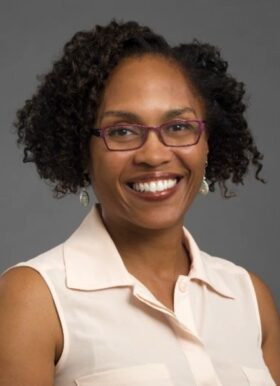
Lisa L. Barnes, PhD
Jesmer Professor of Gerontology and Geriatric Medicine, Department of Neurological Sciences, Rush University Medical Center, and Cognitive Neuropsychologist, Rush Alzheimer Disease Center
Dr. Lisa L. Barnes is internationally recognized for her contributions to minority aging and minority health. Her research interests include disparities in chronic diseases of aging, cognitive decline, and risk factors for Alzheimer’s disease. She is the Principal Investigator of two longitudinal community-based studies of older African Americans, including the Minority Aging Research Study (MARS), which has been funded by NIA since 2004 and the African American Clinical Core which she has led since 2008. She advocates for recruitment of under-represented groups into clinical studies and has received many awards and fellowships from universities and organizations throughout the U.S.

Amanda Boyd, PhD
Associate Professor of Health, Risk and Science Communication, Edward R. Murrow College of Communication and at the Institute for Research and Education to Advance Community Health (IREACH), Washington State University
Dr. Boyd works with Indigenous communities throughout the United States and Canada to examine the impact of communications on risk perceptions and behavior. Through this work, she aims to develop the tools and theory needed to create effective, culturally relevant communications that improve the health and wellbeing of Indigenous populations.

Dedra Buchwald, MD
Director and Professor, Institute for Research and Education to Advance Community Health, Elson [S. Floyd College of Medicine, Washington State University
Dr. Buchwald has a broad background in public health and primary care, with special emphases on culturally competent care and the health of American Indians and Alaska Native peoples. Her work considers health at the level of the individual, the community, and the health system, using an array of quantitative and qualitative methodologies.
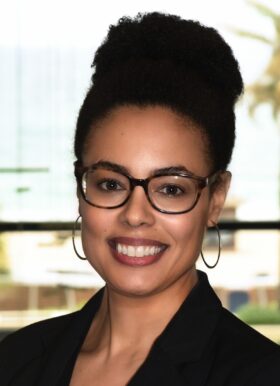
Raina Croff, PhD
Assistant Professor of Neurology, NIA Layton Aging and Alzheimer’s Disease Center, Oregon Health & Science University
Raina Croff, PhD is Assistant Professor of Neurology at the NIA Layton Aging and Alzheimer's Disease Center at Oregon Health & Science University. Her work focuses on creating culturally celebratory approaches to physical activity, social engagement, and reminiscence therapy for healthier aging, particularly amidst the trauma of gentrification and its implications for older Black adults' cognitive health and social connectedness. She received her PhD in Anthropology from Yale University in 2009 and applies her training as an anthropologist of the African Diaspora to designing brain health interventions that celebrate Black culture, history, and community memory.

Andrea Denny, JD, MSSW
Instructor in Neurology and Leader, Knight ADRC Outreach, Recruitment, and Engagement Core Leader, Washington University School of Medicine
The focus of Andrea Denny's research and practice is Alzheimer's disease and related diseases (ADRD) associated with aging. Specific interests include improving recruitment and retention of research volunteers in ADRD research. She also has an interest in the dissemination of knowledge from the academic setting to the community including historically minoritized and rural communities, Her work centers on ways to improve outcomes for those living with ADRD and their care partners.

Jason Flatt, PhD, MPH
Assistant Professor at the University of Nevada, Las Vegas, School of Public Health
Jason D. Flatt, PhD, MPH (Pronouns: He/Him/They/Them) is an Assistant Professor at the University of Nevada, Las Vegas, School of Public Health, Department of Social and Behavioral Health. Jason’s $1.4 million-funded research portfolio works to better understand health concerns and needs of diverse sexual and gender minorities or LGBTQIA+ (lesbian, gay, bisexual, transgender, queer, intersex, asexual as well as additional identities) people living with Alzheimer’s disease, Parkinson’s disease and their care providers. Jason is currently Co-Principal Investigator of The National Institute on Aging-funded study to recruit and engage LGBTQIA+ people with memory loss and their care partners into The RISE (Research Inclusion Supports Equity) Registry.
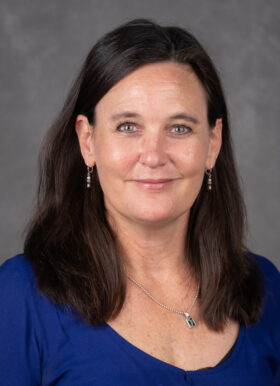
Carey Gleason, PhD
Association Professor of Geriatrics and Gerontology, University of Wisconsin–Madison, and Leader, Inclusion of Under-Represented Groups Core, Wisconsin Alzheimer’s Disease Research Center
Dr. Gleason’s research aims to improve timely identification of and intervention for memory disorders in underserved communities. She is the principal or co-investigator on numerous research projects examining modifiable risk factors, including cardiovascular disease, emotional health, and social context.

Crystal M. Glover, PhD
Associate Professor of Psychiatry and Behavioral Sciences and Neurological Sciences, Rush Alzheimer’s Disease Center, Rush Medical College
Dr. Crystal M. Glover is an applied social psychologist, mixed methodologist, and health equity in aging researcher at the Rush Alzheimer’s Disease Center and an Associate Professor of Psychiatry and Behavioral Sciences (and) Neurological Sciences in Rush Medical College. She also leads the Outreach, Recruitment, and Engagement Core at the Rush Alzheimer’s Disease Center. Dr. Glover’s areas of interest include health equity and health disparities; structural and psychosocial determinants of health including socioeconomic status and psychological wellbeing; intersectionality as a conceptual framework and methodology; and social cognitive processes such as attitudes, beliefs, and perceptions. She focuses her research and related efforts on understanding and facilitating cognitive and healthy aging across all demographic groups but with a special concentration on collaborating with and inclusion of members of African American/Black and Hispanic/Latino communities that have been inequitably included and traditionally understudied in aging research.
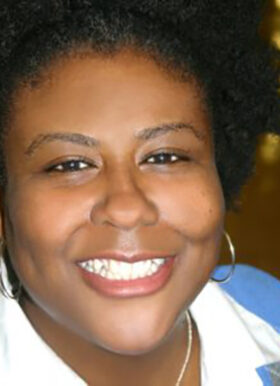
Gina Green-Harris, MPH
Director, University of Wisconsin School of Medicine and Public Health Center for Community Engagement and Health Partnerships (CCEAHP), University Wisconsin – Madison
Green-Harris has expertise in the areas of health equity, diversity and inclusion, cultural competency, leadership development, and research. She has received numerous awards and recognition for her work, including a 2019-2020 UW-Madison Outstanding Woman of Color Award. In September 2020, she was appointed to chair the Governor’s Health Equity Council.

Carl V. Hill, PhD, MPH
Chief Diversity, Equity, and Inclusion Officer, Alzheimer’s Association
Carl V. Hill, Ph.D., MPH, is the chief diversity, equity and inclusion officer for the Alzheimer's Association, overseeing strategic initiatives to strengthen the Association's outreach to all populations, and providing communities with resources and support to address the Alzheimer's crisis. In this role, Dr. Hill is responsible for driving Association-wide messaging and mobilization efforts addressing systemic health inequities in treatment, clinical trials and research. With support from the National Institute on Aging (NIA), Dr. Hill led the Association's work to convene the first national conference dedicated specifically to addressing disparities and promoting equity in dementia science.

William T. Hu, MD, PhD, FAAN
Associate Professor and Chief of Cognitive Neurology Rutgers-RWJ Medical School
Dr. Hu is also a physician-scientist who has made significant contributions to the field of dementia research. While still a neurology resident, he was the first to identify the brain region in Alzheimer’s disease where a pathology more commonly seen in frontotemporal dementia (FTD) and amyotrophic lateral sclerosis (ALS), TDP-43, first appeared. The staging scheme he proposed remains in use across neuropathologic laboratories. After beginning his own research laboratory in 2020, he was the first to develop a reliable diagnostic test for FTD due to TDP-43 which has been replicated by four other groups; show that Black/African Americans have different cerebrospinal fluid profiles of Alzheimer’s disease and inflammation than White Americans, a finding which has significant implication in the diagnosis and treatment of Alzheimer’s disease in Black/African Americans; and identify important methods to better understand the intersection between brain dysfunction and inflammation across multiple diseases.

Darrell Hudson, PhD
Associate Professor, Brown School of Social Work, Washington University in St. Louis
Darrell Hudson’s research focuses on racial/ethnic health disparities and the role of social determinants of health, particularly how socioeconomic position and social context affect health and health disparities. He is currently investigating why data show that African Americans — despite bearing a disproportionate burden of physical health disparities and greater exposure to stress — have lower rates of depression compared to white Americans.

Jonathan Jackson, PhD
Assistant Investigator, Neurology, Mass General Research Institute and Assistant Professor of Neurology, Harvard Medical School
Dr. Jackson's research focuses on midlife and late-life health disparities in clinical settings that affect Black populations. Dr. Jackson also works as a cognitive neuroscientist, investigating the early detection of Alzheimer's disease (AD), particularly in the absence of overt memory problems. He serves on Massachusetts General Hospital's Alzheimer's Disease Research Center (ADRC) and Mass General's Cancer Center Equity Program, specializing in identifying and overcoming barriers to clinical research for people and communities of color.
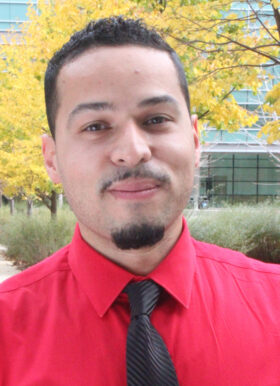
Luis D. Medina, PhD
Assistant Professor and Director, Collaborative on Aging Research and Multicultural Assessment (CARMA), University Houston
Dr. Luis D. Medina is a licensed clinical psychologist and cultural neuropsychologist. His research examines the cultural neuroscience of cognitive aging, particularly in the context of Alzheimer’s disease and related dementias (ADRD), as well as the clinical assessment and diagnosis of ADRD in underrepresented populations.

Jamie Mitchell, PhD
Associate Professor of Social Work, Faculty Associate, Research Center for Group Dynamics, Institute for Social Research, University Michigan
Dr. Mitchell works with academic and community stakeholders to specifically recruit a higher yield of older African Americans into health research, while sharing best practices for minority recruitment and retention in aging research with NIH centers and investigators nationally. In her role as co-invetigator in the NIH NIA-funded Michigan Center for Urban African American Aging Research (MCUAAAR) project and co-director of the Community Liaison and Recruitment Core of MCUAAAR, she engages a thriving community advisory board of African American older adults, and co-manages the administrative components of MCUAAAR’s Participant Research Registry of 1200 older African American research participants in Detroit.
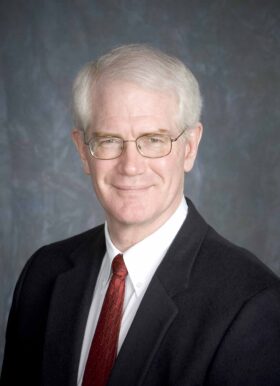
John C. Morris, MD
Friedman Distinguished Professor of Neurology, Knight ADRC at Washington University School of Medicine
The focus of Dr. Morris' research and practice is Alzheimer's disease and other neurological disorders associated with aging. Specific research interests include improving the diagnosis of early-stage Alzheimer's disease, clinicopathological correlations in dementing disorders, evaluating new drugs for the treatment of dementia, establishing phenotypes for inherited forms of Alzheimer disease and other dementias, and identifying preclinical stages of Alzheimer disease by biomarker and neuroimaging studies.

Sid O'Bryant, PhD
Professor, Family Medicine and Osteopathic Manipulative Medicine, and Executive Director, Institute for Translational Research, University of North Texas Health Science Center
Dr. O'Bryant is focused on identifying precision medicine approaches to dealing with brain diseases like Alzheimer’s disease, Parkinson’s disease, Down syndrome, Dementia with Lewy bodies and others. He believes that, through novel collaborative science, together we can bring better tools to health care providers helping patients and families.
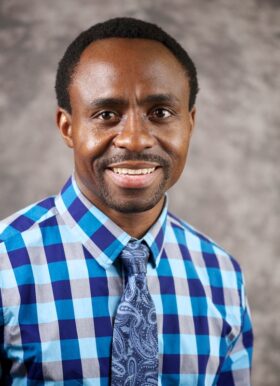
Ozioma Okonkwo, PhD
Associate Professor, Department of Medicine and the Wisconsin Alzheimer Disease Research Center, University Wisconsin – Madison
Dr. Okonkwo's research focuses on clarifying how alterations in the brain and other biomolecules (such as cerebrospinal fluid β-amyloid) place some cognitively-normal individuals on a trajectory that culminates in probable Alzheimer’s disease. He is also interested in discovering new knowledge concerning the modulation of the link between brain changes and cognitive decline by both modifiable (e.g., cognitively-stimulating activities, physical exercise) and non-modifiable (e.g., genetic vulnerability) factors.

Van Park, PhD, MPH
Professor, Community Health Systems, School of Nursing, University of California, San Francisco
Dr. Park's primary research interest is to address issues related to racial and ethnic minority health and healthcare disparities, especially among Asian Americans and Pacific Islanders (AAPI), through community-based participatory research. Her research areas include mental health and Alzheimer's disease and related dementias (ADRD) caregiving.
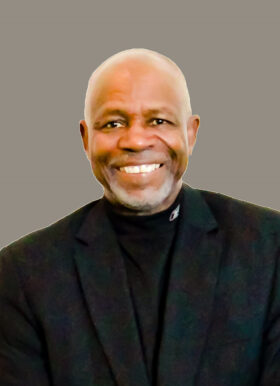
Douglass Petty, PhD
St. Louis Community Leader and Chair, Knight ADRC African American Advisory Board, Washington University School of Medicine
The focus of Pastor Douglass Petty's contribution to research in Alzheimer's disease and related diseases (ADRD) is his long-time involvement in and current chairing of the Knight ADRC African American Advisory Board. The Board advises the Knight ADRC on strategies to improve recruitment and retention of historically minoritized groups in ADRD research.

Elena Portacolone, PhD, MBA, MPH
Associate Professor, Institute for Health & Aging, School of Nursing, University of California, San Francisco
Dr. Portacolone has research experience in studying cognitive impairment, older adults who are racial/ethnic minorities, innovative recruitment strategies, as well as artificial intelligence and other technologies to support people with cognitive impairment age in place. She has led six investigations that focus on identifying barriers and facilitators to acute and long-term services and supports, increasing engagement of racial/ethnic minorities in dementia research, social integration, and emergency preparedness in vulnerable older adults, the majority of them living alone. The majority of study participants in her studies belong to racial/ethnic minorities. She has received extensive training in cognitive impairment, ethics, and advanced qualitative methods, as well as mixed methods.
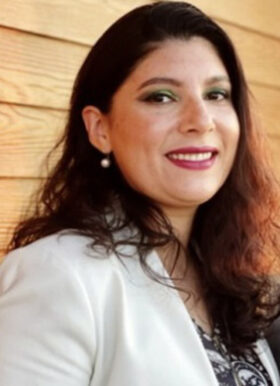
Tamara Restrepo, MS
Project Manager, Trusting Research, University of California, San Francisco
Tamara’s personal mission is to make a positive impact on human health. With a background in biomedical science and business administration, Tamara has contributed to various organizations in the Academic Research, Healthcare and Biotech industries over the past ten years by crafting strategy, as well as leading the operation and implementation efforts. Tamara has a keen interest in the following areas; Health policy, Change management, and Empowerment of underrepresented communities.

Monica Rivera-Mindt, PhD
President, Hispanic Neuropsychological Society, Professor of Psychology, Fordham University, and holds a joint appointment in Neurology at the Icahn School of Medicine at Mount Sinai
The overarching aim of my work is to reduce health disparities among disenfranchised and underserved populations by utilizing my research to inform culturally-tailored interventions and ultimately improve health outcomes among these populations. To this end, my research is dedicated to investigating the effects of HIV, aging, substance use, and substance use treatment on the brain, functional outcomes, and health disparities - particularly among U.S. Latina/o and Afro-Caribbean populations.
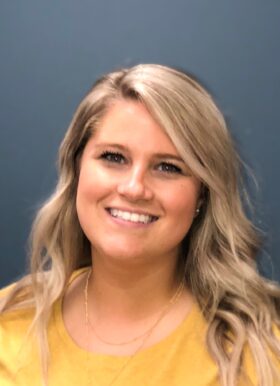
Marissa Streitz, MSW, LCSW
Project Manager, Knight ADRC, Washington University School of Medicine
Marissa Streitz, MSW, LCSW is a Project Manager at the Knight Alzheimer Disease Research Center at the Washington University School of Medicine and has 10 years of geriatric social work experience. Marissa's research interests include disparities in healthy aging and social determinants of health. Marissa has published in such journals as Alzheimer’s & Dementia: The Journal of the Alzheimer’s Association, Alzheimer Disease and Associated Disorders, and Patient Education and Counseling.

Consuelo H. Wilkins, MD, MSCI
Professor of Medicine, Division of Geriatric Medicine, Senior Vice President and Senior Associate Dean, for Health Equity and Inclusive Excellence, Vanderbilt University
Among Dr. Wilkins’ many contributions to science is her prescient focus on engaging racial and ethnic minority communities, using implementation science methodologies in the design and conduct of clinical research. She has pioneered efforts to move the academic and clinical research enterprise to transform approaches to clinical research design by embedding participant and community engagement in every aspect of biomedical discovery. An elected member of the National Academy of Medicine, she has published over 100 papers on her research.

Megan Zuelsdorff, PhD
Assistant Professor, University of Wisconsin School of Nursing
Dr. Zuelsdorff is an epidemiologist studying social-to-biological pathways that shape cognitive health and health disparities in older populations. Primary goals of her research program include identifying (1) community-specific dementia risk factors, as well as (2) personal, community, and policy-based resources that promote successful aging, delay impairment, and reduce burden for families and communities.